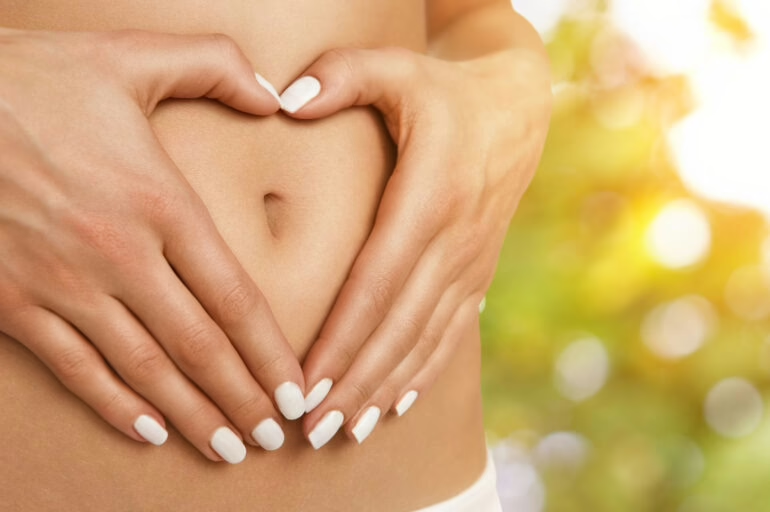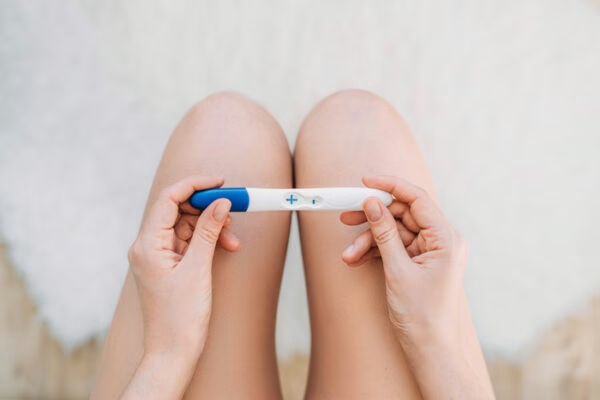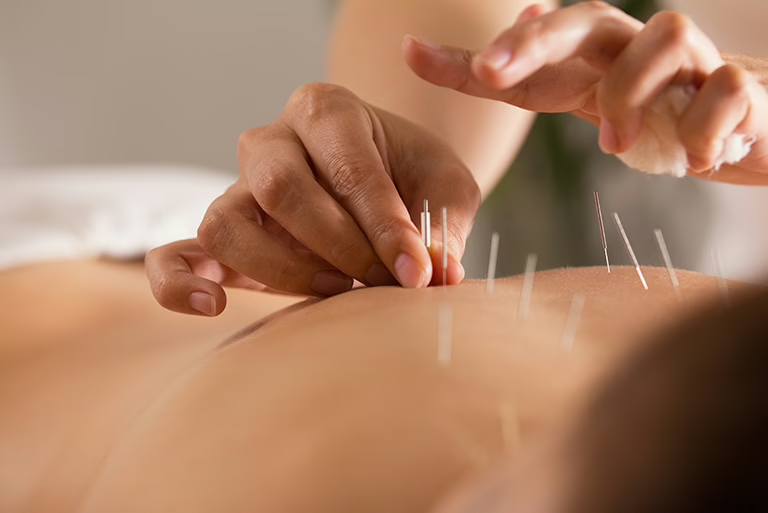5 Reasons to Try TCM for Alternative Fertility Treatments

Link copied! For many individuals and couples facing fertility issues, the desire to bring new life into the world can be emotionally and physically taxing. However, in recent years, Traditional Chinese Medicine (TCM) has emerged as an alternative or complementary approach to Western fertility treatments. TCM, rooted in ancient wisdom and holistic principles, offers a unique perspective on fertility—one that resonates with the desire for balance, harmony, and natural well-being. In this article, we will explore why an increasing number of people are turning to TCM as an infertility treatment in Singapore. Keep reading to find out more. 1. TCM Works in Tandem With Western Fertility Treatments You do not have to choose between one or the other. In fact, many couples find that combining TCM for fertility with Western treatments can enhance their chances of success. As a complementary fertility therapy, TCM can help prepare your body for procedures like IVF or IUI. Through acupuncture and herbal medications, TCM supports both the body and mind, making the process more effective and less stressful. 2. Natural Treatments for a Gentle Approach If you are concerned about the potential side effects of Western fertility treatments, TCM provides a gentler and more natural alternative. TCM practitioners at Oriental Remedies Clinic focus on restoring balance and harmony within the body through the combination of traditional and tech-enhanced therapies. This solution can be especially appealing to individuals who prefer a holistic, drug-free path to fertility. Learn more: 7 TCM Tips to Boost Fertility the Natural Way 3. Ideal for Family Planning TCM is not just for couples struggling with infertility. They are beneficial in improving your overall reproductive health and increasing your chances of conceiving when you are ready to expand your family. Beyond that, these alternative fertility treatments can help to support a smooth pregnancy and aid in faster recovery post-childbirth for women. 4. Tech-Enhanced Therapies That Support and Enhance Treatments Some TCM clinics in Singapore have embraced technological advancements to enhance their fertility treatments. At Oriental Remedies clinic, our physicians utilise tech-enhanced therapies such as Electro-Lymphatic Therapy and Cell Pro Therapy to support and improve the success rate of conceiving. When couples face multiple imbalances in the body, due to chronic stress, inflammation, and poor blood and lymphatic circulation, the combination of TCM and technology together can target these issues more efficiently, providing a holistic treatment that accelerates your fertility journey. 5. Boosts Overall Health and Well-Being TCM does not just focus on fertility; it promotes overall health and well-being. When you choose TCM as an alternate approach to fertility treatment, you are not just targeting one aspect of your health. You are nurturing your body’s balance, which can lead to better physical and emotional health. Many patients report increased energy, reduced stress, and improved mood, which can all contribute to higher chances of conceiving1. TCM: Your Natural Path to Fertility If you are exploring alternative fertility treatments in Singapore, consider the benefits of TCM. Remember, it is essential to consult with a qualified TCM practitioner known for their expertise in fertility care. They can create a personalised TCM fertility care plan that addresses your unique needs and concerns. Our physicians at Oriental Remedies Clinic are committed to supporting your fertility journey every step of the way. Get in touch with us to find out more. References: 1 Sharma, R., Biedenharn, K. R., Fedor, J. M., & Agarwal, A. (2013). Lifestyle factors and reproductive health: Taking control of your fertility. Reproductive Biology and Endocrinology: RB&E, 11, 66. https://doi.org/10.1186/1477-7827-11-66 RELATED TOPICS YOU MIGHT ALSO LIKE
Preparing Your Body For Pregnancy

Link copied! Preparing for pregnancy is a meaningful step that can have a big impact on your fertility and overall health as a couple. Taking time to get ready helps create the best environment for conception and ensures you are both physically and emotionally prepared for the journey ahead. With a proactive approach, you can increase your chances of conceiving, catch and address potential health concerns early, and build healthy habits that benefit both parents and your future child. Effective preparation depends on your unique body types and goals as a couple. Since fertility tends to drop sharply after age 35, it’s important to start early[1]. Preparation can take anywhere from three months to a year, giving you enough time to make important lifestyle adjustments and plan for this new chapter[1]. It is best for both partners to be involved in fertility efforts since male and female factors are equally important. Research shows that male infertility contributes to about 40–50% of fertility challenges, highlighting why both partners should be proactive[2]. Getting professional guidance before trying to conceive can be very helpful. Medical check-ups, like hormone tests for women and semen analyses for men, can pinpoint any reproductive issues. Conditions like diabetes, high blood pressure, or thyroid problems can also impact pregnancy outcomes, so it is key to visit your doctor to make sure these are well-managed. If any health concerns come up, addressing them with the right treatments can get your body ready and boost your chances of a healthy, successful pregnancy[3]. Nourishing your body Supporting your fertility journey with appropriate supplements can play a vital role in ensuring a healthy pregnancy. Key supplements include folic acid, iron, and DHA: Folic Acid: This essential B vitamin significantly reduces the risk of neural tube defects, such as spinal cord and brain abnormalities, in newborns. It is generally recommended to start taking 400–800 mcg of folic acid daily at least three months before conception and continue through the first 12 weeks of pregnancy[4]. Iron: Regular iron supplementation helps increase red blood cell production and prevents anemia, which can impact both maternal health and fetal development. The recommended daily dosage is 100–200 mg, depending on individual needs and medical advice[5]. DHA (Docosahexaenoic Acid): An omega-3 fatty acid, DHA supports the development of your baby’s brain and eyes. A daily dosage of 300 mg of DHA is typically recommended for pregnant women to ensure optimal fetal development[5]. Traditional Chinese Medicine From a Traditional Chinese Medicine (TCM) perspective, herbal remedies, acupuncture and moxibustion can further support fertility. These treatments work by improving blood circulation to the womb and balancing hormone levels, helping to create an optimal environment for conception. Following a consultation with a TCM practitioner, personalised treatment plans—including tailored herbal prescriptions and specific acupuncture points—may be recommended. Herbal medications Research suggests that herbal medicine may double pregnancy rates[6]. Commonly used herbs in TCM to enhance fertility include sangjisheng (桑寄生), duzhong (杜仲), shudihuang (熟地黄干), nuzhenzi (女贞子), and danggui (当归). These herbs work by strengthening kidney essence and promoting blood flow, which are believed in TCM to play a significant role in boosting fertility. Acupuncture Specific acupressure points such as sanyinjiao (SP6), zusanli (ST36), shenshu (BL23), qihai (CV6), guanyuan (CV4), and zigong (EX-CA-1) can be beneficial for enhancing Qi and blood circulation while stimulating kidney function, supporting reproductive health. Moxibustion Moxibustion involves the combustion of moxi-sticks to warm the body and boost circulation to the womb area, helping to prepare the body for pregnancy. Research supports that moxibustion can increase endometrial thickness, which is crucial for enhancing implantation rates and improving pregnancy outcomes[6]. Tech-enhanced therapies Electro-Lymphatic Therapy (ELT) Electro-Lymphatic Therapy (ELT) is a gentle, non-invasive technique designed to enhance the flow and drainage of the lymphatic system. By supporting the body’s natural detoxification processes, ELT helps to efficiently eliminate toxins, creating a healthier internal environment.The lymphatic system plays a vital role in female reproductive health, influencing hormonal balance and various gynaecological processes that are essential for conception[7]. Improved lymphatic flow can promote hormonal balance, a key factor in optimising fertility, and may enhance your chances of a smooth and successful pregnancy[8]. Cell Pro Therapy (CPT) Cell Pro Therapy utilizes Japanese technology to introduce reducing electrons, which can enhance cellular metabolism and improve blood circulation[9]. This boosts overall wellness, providing additional support for pregnancy readiness. Our holistic approach combining traditional treatments with technology-enhanced therapies is tailored to each person’s unique constitution and designed to restore balance in the body. Through promoting a smooth and healthy flow of Qi and blood, we prepare your body for a healthy pregnancy and optimise your chances for conceiving. Healthy Lifestyle Habits In TCM, engaging in regular, mild-intensity exercise helps regulate the flow of Qi and blood throughout the body. Improved circulation can enhance overall health and create a more supportive environment for pregnancy. In addition to regular exercise, maintaining a healthy weight is crucial for conception and a successful pregnancy. The ideal weight for conception varies according to height, making Body Mass Index (BMI) a helpful metric. Research indicates that a healthy BMI supports balanced levels of female hormones like estrogen and progesterone, reducing the likelihood of menstrual irregularities and other gynecological issues[10]. To promote a healthy pregnancy, it is also essential to minimise or avoid habits that can harm your health or fetal development, such as smoking. Limiting excessive caffeine and alcohol intake is equally important for optimal reproductive health[10]. Mental and Emotional Health Stress is part of life, however, excessive stress can affect your chances of conception. High-stress levels can lower your libido and may even interfere with ovulation, preventing the release of eggs necessary for fertilization. Without ovulation, conception cannot occur, ultimately reducing your chances of becoming pregnant. If you find yourself feeling overwhelmed during your fertility journey, consider the following strategies to alleviate stress[11]: Engage in a new hobby or activity to help shift your focus from trying to conceive. Connect with family or friends to share your thoughts and feelings. Practice relaxation techniques such as
5 Conditions You Didn’t Know Could Affect Fertility

Link copied! Fertility issues are often shrouded in misconceptions, with many people attributing difficulties in conceiving solely to age or reproductive health. While it’s true that age and the health of the reproductive system play significant roles in fertility, these factors only scratch the surface of what can influence one’s ability to conceive. Fertility is a complex interplay of various bodily systems, environmental factors and lifestyle choices. Surprisingly, several conditions that might seem unrelated at first glance can significantly impact fertility. Understanding these lesser-known factors is crucial for those trying to conceive, as it can help identify and address potential obstacles more effectively. Here, we explore five conditions you might not know could affect fertility. 1. Thyroid Disorders The thyroid gland is a small but mighty organ crucial in regulating metabolism and hormone production, both essential for reproductive health. Thyroid disorders, such as hypothyroidism (underactive thyroid) and hyperthyroidism (overactive thyroid), can significantly impact fertility. In women, an underactive thyroid can lead to prolonged menstrual cycles, heavy periods, or even the absence of menstruation. This occurs because insufficient thyroid hormones interfere with the production of sex hormones like estrogen and progesterone. The resulting hormonal imbalance can prevent the maturation and release of eggs, hampering ovulation and making it difficult to conceive [1]. In men, though less common, low thyroid hormone levels can result in decreased testosterone levels, which are associated with erectile dysfunctions, delayed ejaculation and deteriorated semen quality [2]. Conversely, an overactive thyroid can cause irregular menstrual cycles and lighter, shorter periods in women. Excess thyroid hormones can accelerate metabolism and disrupt the normal balance of reproductive hormones such as follicle-stimulating hormone and luteinising hormone, leading to irregular ovulation or even the complete absence of ovulation [3]. In men, elevated thyroid hormone levels affect testosterone levels, thereby affecting testicular functions, semen volume and quality [4]. In TCM, thyroid disorders are often linked to imbalances in Yin and Yang. Hypothyroidism is often associated with Yang deficiency, which leads to a dip in overall Qi and energy levels. This imbalance can manifest as fatigue, sensitivity to cold and constipation. On the other hand, hyperthyroidism is attributed to Yin deficiency, resulting in a dehydrated body constitution with symptoms such as dry skin and eyes, heart palpitations and weight loss. TCM offers a holistic approach to regulating thyroid function and improving overall fertility through personalised herbal medication and acupuncture. Herbal formulas are tailored to each individual’s needs, nourishing Yin or Yang as required, while acupuncture helps harmonise the body’s energy flow, promoting optimal thyroid health and enhancing fertility. Tech-enhanced therapies like Electro-Lymphatic Therapy (ELT) help stimulate lymphatic flow to improve circulation and regulate the flow of hormones while Cell Pro Therapy introduces reducing electrons into the body, helping to improve cellular metabolism and oxygenation, further supporting thyroid health. With this comprehensive approach, individuals can achieve a better hormonal balance, paving the way for improved reproductive health and increased chances of conception. 2. Polycystic Ovary Syndrome (PCOS) Polycystic Ovary Syndrome (PCOS) is a hormonal disorder that is becoming increasingly more common, affecting an estimated 8–13% of women of reproductive age, with up to 70% of cases remaining undiagnosed [5]. PCOS is characterised by irregular menstrual cycles, excess androgen levels and polycystic ovaries. Women with PCOS may have elevated levels of hormones such as estrogen, luteinising hormone and anti-müllerian hormone. These hormones regulate menstruation and ovulation by controlling the growth of the uterine lining and triggering ovulation. Disruptions in these hormone levels interfere with ovulation, making it difficult to conceive [6]. In TCM, PCOS is associated with Phlegm-Dampness accumulation and Blood stagnation. A modern sedentary lifestyle, combined with a diet high in processed and fatty foods, can impact our Spleen, or digestive system in TCM. This causes an uneven distribution of nutrients and fluids in our body, an accumulation Phlegm-Dampness, resulting in symptoms such as weight gain, oily skin and a lowered metabolism. Additionally, this accumulation can disrupt the flow of Blood, causing it to stagnate and accumulate in the womb, which affects reproductive organ function and creates a less-than-ideal environment for conception. Despite being one of the leading causes of infertility in women, PCOS can be managed with herbal medication, acupuncture and lifestyle modifications. Herbal medications are prescribed to address root issues, such as removing Phlegm-Dampness from the body, while acupuncture helps to regulate organ energy and hormone levels. Tech-enhanced therapies such as Electro-Lymphatic Therapy help promote smooth lymphatic flow, which boosts circulation and alleviates symptoms caused by Phlegm-Dampness. Improved lymphatic flow also helps regulate hormone levels and create a uterine environment that is more conducive for pregnancy. Together, TCM and tech-enhanced therapies work to regulate menstruation, balance hormone levels and increase the chances of getting pregnant. 3. Endometriosis Endometriosis is characterised by severe pain in the abdomen or lower back during menstruation. This condition occurs when tissue similar to the lining of the uterus grows outside the uterine cavity. Each month, when the uterine lining sheds during menstruation, this tissue outside the uterus also sheds into the abdomen, leading to severe pain, chronic inflammation and scar tissue formation. These scars can create adhesions between reproductive organs, distorting pelvic anatomy, including the fallopian tubes and ovaries. This distortion can interfere with the release and transport of eggs, hindering their journey to meet sperm for fertilisation. Additionally, the inflammatory environment created by endometriosis is hostile to sperm, eggs, and embryos, making fertilisation and implantation more challenging [7]. Endometriosis is often underdiagnosed because its symptoms can be mistaken for regular menstrual pain. Early diagnosis and treatment can significantly improve fertility outcomes for those trying to conceive. In TCM, endometriosis is associated with Blood stagnation in the womb. Blood stagnation can result from Qi stagnation, Cold accumulation or Dampness. These factors disrupt the normal flow of Qi and Blood, leading to pain and poor womb conditions for fertility TCM offers effective treatments for endometriosis through acupuncture and moxibustion, which help relieve pain, expel Cold, and balance uterine conditions. With a proper diagnosis, herbal medication can address underlying
How TCM and Western Treatments Can Improve Sexual Dysfunction

Link copied! Male sexual dysfunction refers to any disturbance of sexual function that prevents individuals or their partner from enjoying sexual activity and constitute conditions such as erectile dysfunction, also known as impotence (with the latter term less commonly used now), premature ejaculation, low libido, delayed orgasm/ejaculation. With the topic of sexual dysfunction remaining taboo, men find it hard to open up and seek professional help. In this article, we discuss male sexual dysfunction in-depth, treatments available as well as top tips to alleviate sexual dysfunction. We hope to change your perspective, sexual dysfunction is just like any other health condition out there. Sexual dysfunction is more common than you think! *Study on Erectile dysfunction [1]; Study on Premature ejaculation [2] While sexual dysfunction commonly affects older men (age 45 and above), it is a condition that can affect adult men of all ages, especially in our generation. The 2 most common forms of sexual dysfunction affecting men are Erectile dysfunction (ED) and Premature ejaculation (PE). [3] Who is more likely to experience male sexual dysfunction? Factors How it affects your male sexual functions Age While older males (above 45) are more likely to be affected, sexual dysfunction can affect men of all ages, especially in our sedentary generation. Ageing, chronic health conditions and poor lifestyle habits are associated with poorer vascular and nerve health, which have a direct impact on men’s sexual functions. Low testosterone levels in men affect libido and erection. Chronic health conditions e.g. high blood pressure, diabetes, heart disease, high cholesterol, low testosterone, nerve-related disease, obesity Poor lifestyle habits Smoking, sedentary lifestyle, excessive alcohol consumption, excessive weight gain Psychological issues e.g. stress, low confidence, sexual anxiety, depression, relationship problems As sexual activity (e.g. desire for sexual intimacy, erection, orgasm, ejaculation) is largely controlled by our nervous system, any form of psychological issues could affect the sexual response. Why is it important to seek help early? On the emotional side of things, proper sexual function is important in any relationship. Having a healthy sex life strengthens your bond and emotional intimacy with your partner. Leaving sexual dysfunction unattended could spiral into a vicious cycle where stress, sexual anxiety and relationship problems worsen your sexual dysfunction. In addition, sexual function problems can be an early warning of other chronic conditions. Recent research concluded, erectile dysfunction might be an indicator of poor cardiovascular health. [4] Can you fully recover from sexual dysfunction? With the right cause identified, doctors and TCM physicians can work out a treatment plan that includes lifestyle and dietary changes to improve your condition. In other words, with the right treatments, the chances of recovering or getting your sexual dysfunction managed are very high. The earlier you seek treatment, the easier it is to manage the condition. “We’re living in a time where information is readily available and help is everywhere. This makes it so much more important to seek treatment from trusted professionals that you are comfortable with.” ~ Dr. Chan Jun Yang What are the main types of sexual dysfunction in men? 1. Erectile dysfunction (ED) (阳痿) It is the repeated inability to achieve or maintain an erection for satisfactory sexual performance. What causes it: Psychological issues (e.g. relationship issues, depression, anxiety, stress, worrying about ED, fatigue) Ageing Poor lifestyle (e.g. excessive alcohol intake, lack of exercise, smoking, obesity) Chronic health problems (high blood pressure, high cholesterol, heart disease, diabetes, nerve disease) Hormonal disorders (e.g. low testosterone) Medications (e.g. antidepressants, certain blood pressure medications) Liver Qi stagnation syndrome Blood-stasis syndrome MingMen Fire weakening syndrome Heart-Spleen deficiency syndrome Yin deficiency raging Fire syndrome Phlegm-Damp syndrome 2. Premature ejaculation (PE) (早泄) It is early or rapid ejaculation that happens before the male and his partner would like. What causes it: Psychological issues (e.g. relationship issues, depression, anxiety, stress, fatigue) Low levels of brain neurotransmitters i.e. serotonin Testosterone deficiency Prostate problems (e.g. infection, inflammation) Concurrent ED (males with ED may form a habit of rushing to ejaculate as they are worried of the inability to maintain the erection) Liver Qi stagnation syndrome MingMen Fire weakening syndrome Heart-Spleen deficiency syndrome Yin deficiency raging Fire syndrome 3. Decreased/ Low libido (性欲减退) It is the lack of sexual desire or sex drive to put it simply. What causes it: Often linked to stress, relationship issues, low self-esteem, and fatigue Medical conditions (e.g. testosterone deficiency) Sexual dysfunctions such as ED and PE Liver Qi stagnation syndrome MingMen Fire weakening syndrome Heart-Spleen deficiency syndrome Phlegm-Damp syndrome 4. Delayed orgasm/ejaculation It is a persistent difficulty or delay in attaining orgasm after sufficient sexual stimulation, causing emotional distress. What causes it: Psychological issues (e.g. relationship issues, depression, anxiety, stress) Reduced penile stimulation due to frequent or unusual masturbation techniques, hyperstimulation (e.g. porn), disparity between fantasy and partner Ageing Medications/substances (e.g. antidepressants, excessive alcohol use) Health conditions (e.g.diabetes, nerve disease, low testosterone) Prostate surgery 5. Sexual anxiety (性焦虑) Also known as sexual performance anxiety typically results from negative thoughts about your ability to perform well. What causes it: Fear of not being able to satisfy partner sexually Self-esteem issues like body weight, body image Problems in your relationship Concern about premature ejaculation or taking too long to reach orgasm Anxiety about not being able to have an orgasm or enjoy the sexual experience Medications (e.g. antidepressants, certain blood pressure medications) Liver Qi stagnation syndrome Phlegm-Damp syndrome Sexual dysfunction from a TCM perspective In TCM, imbalances and disharmony in the body lead to the development of health conditions and sexual dysfunction is one of them. The 6 most common syndromes causing sexual dysfunctions are: MingMen Fire weakening syndrome (命门火衰证) Liver Qi stagnation syndrome (肝郁气滞证) Phlegm-Damp syndrome (痰湿阻滞证) Yin deficiency raging Fire syndrome (阴虚火旺证) Heart-Spleen deficiency syndrome (心脾两虚证) Blood-stasis syndrome (血脉瘀滞证) 1.MingMen Fire weakening syndrome (命门火衰证) Mingmen is an area between the second and third lumbar vertebra. In TCM, our reproductive function and potency is directly linked to the MingMen. Poor MingMen Fire can arise from hereditary conditions, excessive sexual activity and old age. When the
Improve Male Sexual Function, Treat Erectile Dysfunction And Premature Ejaculation The TCM Way

Link copied! Erectile dysfunction (ED) and premature ejaculation (PE) are the 2 most common forms of sexual dysfunction affecting men [1]. According to a survey of almost 5,000 men in Asia-Pacific, PE is known to affect 13%-16% of all men while ED affects 5%-8% [2]. Poor sexual function and low libido can have deleterious effects on a man’s quality of life and his relationship with his spouse. Yet, male sexual health is something that most Asian men loath discussing even though the attitudes of our society are increasingly westernized. Although erectile dysfunction is often laughed at for indicating male impotence, studies have shown that it is a tell-tale sign of other underlying health conditions that might warrant our attention [3]. Erectile dysfunction management methods like Viagra or Ciali are well known. However, most people remain uninformed about the treatment of premature ejaculation. Today, we dive into the root causes of sexual dysfunction and open your treatment options for better male sexual function. You do not need to live with sexual dysfunction. With proper treatment, lifestyle and diet changes, Traditional Chinese Medicine (TCM) can help you regain sexual function and confidence. *Erectile dysfunction (ED) is the inability to get and/or keep an erection firm enough for sex.*Premature ejaculation (PE) occurs when a man ejaculates sooner during sexual intercourse than he or his partner would like. How can Oriental Remedies Group help men who are experiencing sexual dysfunction? Step 1: An honest and self-directed assessment of sexual function The simplest and most cost-effective way to assess the severity of sexual dysfunction is through a self-assessment survey. You can use the International Index of Erectile Function (IIEF) survey to evaluate the severity of erectile dysfunction and libido issues. For premature ejaculation, use the Premature Ejaculation Diagnostic Tool (PEDT) survey. Evaluating Erectile Function Here are 6 IIEF questions (Qns 1 – 5, 15) from The British Association of Urological Surgeons (BAUS) patient questionnaire. These questions are determining considerations that fall under domain A (Erectile Dysfunction) of the questionnaire. The British Association of Urological Surgeons (BAUS) The maximum score for these questions (Qns 1-5, 15) under domain A is 30. A score of 14 and below suggests low erectile function, a score between 15 to 25 suggests moderate erectile function and a score from 26 and above suggests high erectile function. As the cause of erectile dysfunction can be physical or psychological, you can try taking a nocturnal penile tumescence (NPT) test (erection self-test) to determine if it is psychological or not. Simply cut a 2-cm wide strip of paper that is long enough to go around the penis with a little overlap. The paper can be secured with a piece of 1-inch tape. Steps to perform an NPT: Go commando or change into loose-fitting underwear before you go to bed. Stick half-inch of the tape on one end of the paper, circle the strip of paper around the shaft of the flaccid penis and secure it with the remaining tape. The strip of paper should be snug enough so that the paper breaks apart if you have an erection. It is highly recommended to sleep on your back so the strip will not be affected by your movement. Repeat this test for 3 consecutive nights. Interpreting Results Check to see if the strip is broken when you wake up in the morning. If it is, you could have had an erection in your sleep. This indicates that your penis physically functions properly, indicating that any possible erectile issues are mostly psychological in nature. Rest assured there are treatments that can help both physical and psychological erectile dysfunction – acupuncture effectively regulates stress and anxiety to improve erection quality in men who suffer from psychogenic erectile dysfunction. Evaluating Libido These two IIEF questions (Qns 11,12) from BAUS’s patient questionnaire fall under domain C (Sexual Desire) which evaluates your sex drive/libido. The British Association of Urological Surgeons (BAUS) The maximum score for Qns 11, 12 is 10. Scoring 6 and below indicates a low libido. If the sex drive or libido is low, we recommend taking a blood test to examine your testosterone and prolactin levels – these are male hormones that affect your libido. Evaluating Premature Ejaculation We use the PEDT survey to evaluate premature ejaculation. A score of 8 or lower indicates no premature ejaculation, 9 or 10 indicates probable premature ejaculation, and 11 or higher indicates premature ejaculation. The British Association of Urological Surgeons (BAUS) Step 2: Understand the root cause from a TCM perspective Traditionally, sexual function and reproductive ability are thought to reside in the Kidneys and those suffering from Kidney deficiency syndrome would experience a loss of sexual function. Today, in this age of overnutrition, new studies have shown that the loss of sexual function due to Kidney deficiency syndrome is gradually becoming less common. Instead, the loss of sexual function is found to be more closely related to Liver Qi stagnation syndrome, Blood-stasis syndrome and Phlegm-Damp syndrome due to the stresses of modern living, our sedentary lifestyles and the indulgence of processed foods. Here’s a quick walk-through of the above-mentioned syndromes and their causes: i. Liver Qi stagnation syndrome TCM believes that the Liver is in charge of regulating emotions. Thus, an unhealthy work-life balance and being overly stressed at work causes our emotions to be in a constant state of flux. Over time this wears out the Qi in the Liver meridian causing Liver Qi stagnation syndrome. As the Liver meridian is directly linked to the penis, Qi stagnation at the Liver will lead to poor erectile functions. ii. Blood-stasis syndrome Other than increasing the burden on our digestive system, over-consumption of cold or raw food also causes the body to cool down which hampers the proper flow of Blood according to TCM theory – Blood should flow first in our stomach and subsequently to the rest of our body. Paired with a sedentary lifestyle, poor Blood flow can develop resulting in Blood-stasis syndrome. In severe instances
How does TCM help men during IVF?

Link copied! So much of fertility and related support is focused on the female and very few males seek out TCM support. On top of that, a trip to the fertility specialist might leave male patients feeling flustered and confused – What do the abbreviations like PR, NP, IM in a semen examination report mean? Terms like low motility, low volume and low concentration might be uttered by the doctor. Does this experience seem familiar to you? We have previously discussed ways to improve fertility, and in this article, we will zoom in specifically into providing support to men going through IVF and outline how TCM can help the male patient in your IVF journey. Note: All words in Italics refer to the TCM organ-system or TCM terminology and not the anatomical organ referenced in western medicine. What is IVF? IVF (In-vitro fertilization) is a kind of ART (Assisted-reproduction therapy) commonly used today to help couples conceive when natural methods fail. There are 4 generations of IVF in the world today: IVF-ET (In-vitro fertilization-embryo transfer) ICSI (Intracytoplasmic sperm injection) PGD/PGS (Preimplantation Genetic Diagnosis/Preimplantation genetic screening) GVT (Germinal vesicle transfer) In Singapore, the first 2 procedures are often done. Between PGS and PGD, only PGD is done in Singapore if either parent has a family member with a genetic condition to prevent said hereditary disease from being passed down to the future child. Due to issues concerning medical ethics, GVT is currently not being done in Singapore. Who requires IVF? Men undergoing IVF usually have one or several issues associated with: Semen quality Poor sperm motility (asthenozoospermia) means that the sperm do not swim properly. Sperm morphology refers to the size and shape of the sperm in a given semen sample. You want at least 4% of sperm to be a normal shape. Otherwise, you could have fertility problems because of abnormal sperm morphology Semen quantity Sexual function Typical semen analysis results for to-be IVF candidates: Poor motility in their sperm sample – Grade A sperm lower than 25% or Grade A+B lower than 32% Sperms lower than 4% normal morphology Diminished sperm concentration – between 10 x 106 to 15 x 106 sperm/ml In couples who have had recurrent miscarriages, failure to conceive despite having near to normal sperm parameters or if both parties have normal parameters [1], the male would be recommended to undergo testing for sperm DNA fragmentation or DFI (DNA fragmentation index). There are many ways and methods by which DFI is measured but it is usually presented as a percentage. A person with DFI value above 30% is thought to be a viable candidate for ICSI. [2] A major cause of high DFI values are excessive oxidative stress caused by ageing, improper lifestyle choices, or exposure to chemicals and radiation. [3] DFI testing is not done routinely in a semen analysis yet. However, from our observations over the years, high DFI values can result in recurrent miscarriages and be the missing piece to explain increasing infertility whereby a cause cannot be found in either party. Typical DFI readings Source: www.researchgate.net After proper diagnosis, men with moderate to severe reduction in sperm concentration also known as Oligozoospermia, ICSI will be the better choice to increase the chance of fertilization. ICSI involves the insemination of an ovum from the female using just one sperm chosen from the semen sample from the male. This is done using a special needle which can penetrate the zona pellucida and insert a sperm directly without the sperm having to push its way through the Zona pellucida – a thick transparent membrane surrounding the ovum. ICSI involves the insemination of an ovum from the female using just one sperm chosen from the semen sample from the male. Source: www.researchgate.net How can men prepare for IVF Having to watch one’s female partner endure IVF can be a stressful period for the male. The procedure is costly and puts a physiological, emotional, psychological and financial toll on the couple. In addition, the female has to undergo painful self-injections during the ovarian stimulation period which can result in her experiencing severe mood swings. As a result, there is a change in family dynamics and the male might feel guilty for putting their wife through such a gruelling ordeal especially if the fertility issue was not hers to begin with. It is important for the male to prepare mentally to manage these stresses to prepare adequately for IVF. If the male is overweight, it is also necessary for him to control his diet so as to reduce the amount of visceral fat which can disrupt the balance of endocrine hormones in the body. [4] Additionally, TCM views lifestyle habits like smoking, drinking, improper diet or eating habits, and sleeping late as detrimental to proper sperm development. To get more tips on improving fertility in general, you can read more on Improving Male Fertility Using Traditional Chinese Medicine (TCM). How can Oriental Remedies Group help men undergoing IVF? Timing is essential during IVF and therefore there is also a recommended treatment schedule for acupuncture on IVF patients. The schedule is as below: Herbal Medication & Dietary Changes TCM believes that issues of infertility are generally related to the Kidney. That being said, the Kidney can only produce good quality sperm if the Five Organs are also well-nourished and have surplus to provide for the Kidney. Hence, tonifying and nourishing the Five Organs is the basis of infertility treatment with emphasis placed in the provision of surplus Qi for the Kidney. Herbs like Wolfberries 枸杞子 and Chinese dodder seed菟丝子 have been used over many centuries to help increase quality of sperm by tonifying the Kidney and Liver. Codonopsis root党参 and Astragalus 黄芪 are also commonly used herbs which tonify both Spleen and Lung Qi.
Improve your IVF success rate with Acupuncture

Improve your IVF success rate with Acupuncture Link copied! Infertility is more common than we think. Statistics have shown that 40% of married Singaporean couples who are actively trying for a baby are “not happy” with their progress. Many factors such as stress in our lives, our sedentary lifestyle, chemicals and toxins from our environment or the food we eat, may cause infertility. To help more couples fulfil their baby dreams, Oriental Remedies Group will be sharing a series of articles on fertility issues, for both male and female fertility. Whether you are: Trying to conceive naturally Going through assisted reproductive technology such as IUI Preparing or going through IVF, fresh or FET cycle We will share how TCM can be used to help condition the body for conception naturally and via assisted reproductive technology such as IUI and IVF. The path towards conception can be long and daunting and we hope to help educate and bring practical solutions for couples. For this specific article, we will look at how TCM can help the female during the IVF process. Fertility Series: Acupuncture for females during IVF What is IVF? In vitro fertilization (IVF) is a complex series of procedures used to help with fertility or prevent genetic problems and assist with the conception of a child. During IVF, mature eggs are collected from ovaries and fertilized by sperm in a laboratory. Then the fertilized egg (embryo) or eggs (embryos) are transferred to a uterus. One full cycle of IVF takes about three weeks. Sometimes these steps are split into different parts and the process can take longer. How can acupuncture help? Research has proven that TCM can help condition your body and therefore increase the success rates with IVF. This can be done through various ways such as through taking herbal medication and acupuncture. In this article, we will discuss how acupuncture complements IVF. 1) Effect on Ovarian Follicles Acupuncture has positive effects on ovarian follicles and assists in ovulation. Modern medicine believes that acupuncture helps to regulate the function of the hypothalamic-pituitary-ovarian axis system, which improves the secretion of various hormones such as the follicle-stimulating hormone, luteinizing hormone, estradiol, progesterone etc.[1]. This enhances ovulation in the individuals[2]. Farnoosh Bidouee’s study[3] on acupuncture in 120 infertile patients who received artificial insemination discovered that ovulation is improved after acupuncture. 2) Effect on Ovaries During IVF, follicular growth after ovulation induction is dependent on the blood supply of the ovaries. Studies [4][5] have shown that acupuncture in IVF patients increases the blood flow to the ovaries as compared to the placebo acupuncture group and control group. Therefore, acupuncture can improve the blood circulation in the ovaries and uterus, which helps to promote the growth and development of follicles. 3) Effect on Endometrial Receptivity Endometrial receptivity is a temporally unique sequence of factors that make the endometrium receptive to embryonic implantation. It is closely related to the success of implantation and pregnancy. Various conditions such as endometriosis, polycystic ovary syndrome and luteal insufficiency can affect endometrial receptivity. Zhong et al[6] has concluded that acupuncture is effective and safe to use in women with low endometrial receptivity, thereby increasing the chances of pregnancy. 4) Effect on Emotions IVF is a process that can be emotionally intense and stressful for the couple, especially so for the female who has to go through hormonal changes, side effects of drugs and potential complications of the medical treatment. The most common psychological challenges of infertile patients are depression and anxiety. These adverse emotions may be due to various factors such as high treatment cost, frequent blood draws, intramuscular injections, side effects of various complications etc. A number of studies [7][8] have shown that consecutive sessions of acupuncture from the day of injection of gonadotropin till HCG day, can reduce the excitability of the sympathetic nervous system, relieving negative emotions which aids in increasing the pregnancy rate. All couples who are preparing to start a family naturally or for those who are undergoing assisted reproductive technology, such as IUI and IVF can benefit from doing acupuncture to condition their bodies. What is the treatment schedule for acupuncture in IVF patients? Timing is essential during IVF and therefore there is also a recommended treatment schedule for acupuncture on IVF patients. The schedule is as below: Click to enlarge Your journey is the most important! In Oriental Remedies Group, we have more than 10 certified bi-lingual TCM Physicians. Each of them has been trained in both Nanyang Technological University (Singapore) and China for a minimum of 5-8 years, in both Biomedical Science and TCM before being certified to practice in Singapore. Specifically, we have Physician Poh who specializes in female fertility, gynaecological conditions and beauty. IVF is a procedure that takes time, effort and great determination. The chances of success if higher when the female further prepares her body for the procedure. With current research on how acupuncture complements IVF, we hope to be able to help more females trying for IVF. Do contact us at +65 8087 0486 for a personalized consultation to help you with your worries. Also, when it comes to fertility, it really does takes two hands to clap. The male partner who does his part to ensure that the sperm quality is optimal for use during IVF increases the couple’s chances. Do refer to our earlier article by male fertility expert, Physician Lim, to find out more about improving male fertility in order to improve quality of sperm – Improving Male Fertility Using Traditional Chinese Medicine (TCM). For those who wants to start a family naturally and wants to find out how you can prepare yourself and your partner, do also look out for our other articles on fertility. This article is written by Senior Physician Leong Weizhen, with contributions from Senior Therapist Hannie Hong. Leong Weizhen Chief Medical Officer, Lead Physician VIEW QUALIFICATIONS Upon graduation from NTU/BUCM with double degree in both Biomedical Science and TCM, Singaporean Physician Leong Weizhen was awarded the prestigious Chinese Government Scholarship (out of only seven places offered) for a 3-year Master’s course in BUCM and under the prestigious
Improving Male Fertility Using Traditional Chinese Medicine (TCM)

Improving Male Fertility Using Traditional Chinese Medicine (TCM) Link copied! If you and your spouse have been actively but unsuccessfully trying for a child, please know that you are definitely not alone. According to the World Health Organization (WHO), infertility will be the third most serious health condition after cancer and cardiovascular diseases plaguing humanity in the 21st century. About 40 per cent of married Singaporean couples who are actively trying for a baby are “not happy” with their progress, according to a recent survey on fertility health released in July 2019. While women traditionally bore the stigma of infertility and childlessness, the man’s role in infertility issues is gaining awareness. Recent statistics show that married couples experiencing infertility are due to problems arising from the male partner.1 While there is a lack of nationwide data regarding male reproductive health, doctors say rising male infertility rates here mirror the global phenomenon of declining sperm quality in the last 40 years. How is infertility defined? Infertility is defined as a failure to achieve a clinical pregnancy after 12 months or more of regular unprotected sexual intercourse. How can Oriental Remedies Group help men who are experiencing infertility issues? Note: All words in Italics refer to the TCM organ-system and not the anatomical organ referenced in western medicine. Step 1: Full analysis of the semen analysis report The first step to understanding male infertility involves making sense of the semen analysis report. According to the 5th edition of the WHO laboratory manual for the examination and processing of human semen, a normal semen sample should fulfil the parameters below: An example of a semen analysis report A sex hormone test (testosterone, estrogen, FSH, LH and prolactin levels) can be very helpful in providing the physician with baseline information about your endocrine health. This report combined with other findings mentioned above helps the physician determine the number of courses required for treatment. An example of a sex hormone test. Source: Reddit In a typical consult, our experienced physicians would encourage our patients to bring their past health reports especially any fertility test results for a holistic understanding of the couple’s health conditions. Step 2: Understand the root cause issues from a TCM perspective Male infertility can be due to many factors ranging from congenital factors, dietary habits, emotional extremes, external pathogenic factors, external injuries and maltreatment among various others. However, not every male exposed to the same external factors results in infertility. This can be attributed to the health of the individual’s Kidneys. With this understanding, modern eminent TCM andrologists like Professor Xu Fu Song(徐福松) and Wang Qi (王琦) have successfully treated numerous patients for many decades by combining continual research in TCM and use of scientific advances in semen analysis and endocrine testing. TCM believes that the Kidneys govern the pre-natal essence or Jing(精) in the human body. This pre-natal essence is what determines the quality of our reproductive ability to carry on the family line. Having said that, the quality of the Kidney essence depends largely on the surplus Qi(气) which our other organs produce. TCM handles male infertility by understanding if there are excess or deficiencies in the body. Tonifying deficiency and removing excess is a fundamental technique used to restore balance and harmony to the body. The semen analysis content is first divided into classifications of excess or deficiency. For example, when there is a diminished sperm concentration, it could signify a deficiency in the body resulting in Kidney deficiency. When the percentage of sperm with normal morphology is low, it usually signifies that there is an excess in pathogenic factors that have to be cleared in order to restore balance to the body. Other than the semen analysis, the sexual function of the male is also assessed as different symptoms of erectile dysfunction or premature ejaculation could provide clues as to which organs are not functioning optimally. Examples like erectile dysfunction during stressful periods is a signal of Liver Qi stagnation whereas premature ejaculation combined with frequent sweating alludes to Lung Qi deficiency. Step 3: Customised treatment approach at Oriental Remedies Group (ORG)? Because everyone is unique and lead dissimilar lifestyles, a one size fits all approach will be insufficient to manage this issue. Only a holistic approach taking into consideration all factors that result in poor fertility can TCM manage this condition. This means that not only will you regain your reproductive health, your general health will also see visible and perceptible improvement. Through our TCM diagnosis and observing how our body reacts to our diet, lifestyle and environment, we can empower you to make the right choices and tailor-make a treatment course most beneficial to your reproductive health. What are the treatments offered for fertility improvements? Herbal Medication Our experienced and well-trained physicians will go through with you your body condition, daily habits and so on to gain a better understanding about the root causes of the imbalances in your body. For example, if the root cause is due to spleen deficiency and dampness, the physicians may prescribe Bai Zhu, Fu Ling and Yi Yi Ren to tonify the Spleen and remove dampness. If the issues are more related to Kidney Yin deficiency, the physicians may use Gou qi zi, Shu Di Huang, Shan Zhu Yu to replenish Kidney Yin. As for damp-heat, Tu Fu Ling, Bi Xie and Che Qian Zi to clear heat and drain dampness. For infertility patients, common herbs that are prescribed to help boost the quality of sperm include Gou Qi Zi, Tu Si Zi, Wu Wei Zi, Fu Pen Zi and Che Qian Zi. These 5 herbs combine to form a decoction called Wu Zi Yan Zong Wan, the premier fertility decoction of ancient and modern times. However, the components of each infertility patient’s medication would differ based on the root cause(s) and deficiencies they may have. Acupuncture Acupuncture uses very fine needles into specific points along the meridians to correct the imbalances of the various organs. In one study regarding acupuncture and abnormal semen parameters, acupuncture was used to stimulate 4 points on the body namely, BL23 (Shen Shu), ST36 (Zu San Li), CV1 (Hui Yin) and CV4 (Guan Yuan). A placebo control group together with a blank control group were included in the study. The researchers found that the patients who underwent the acupuncture